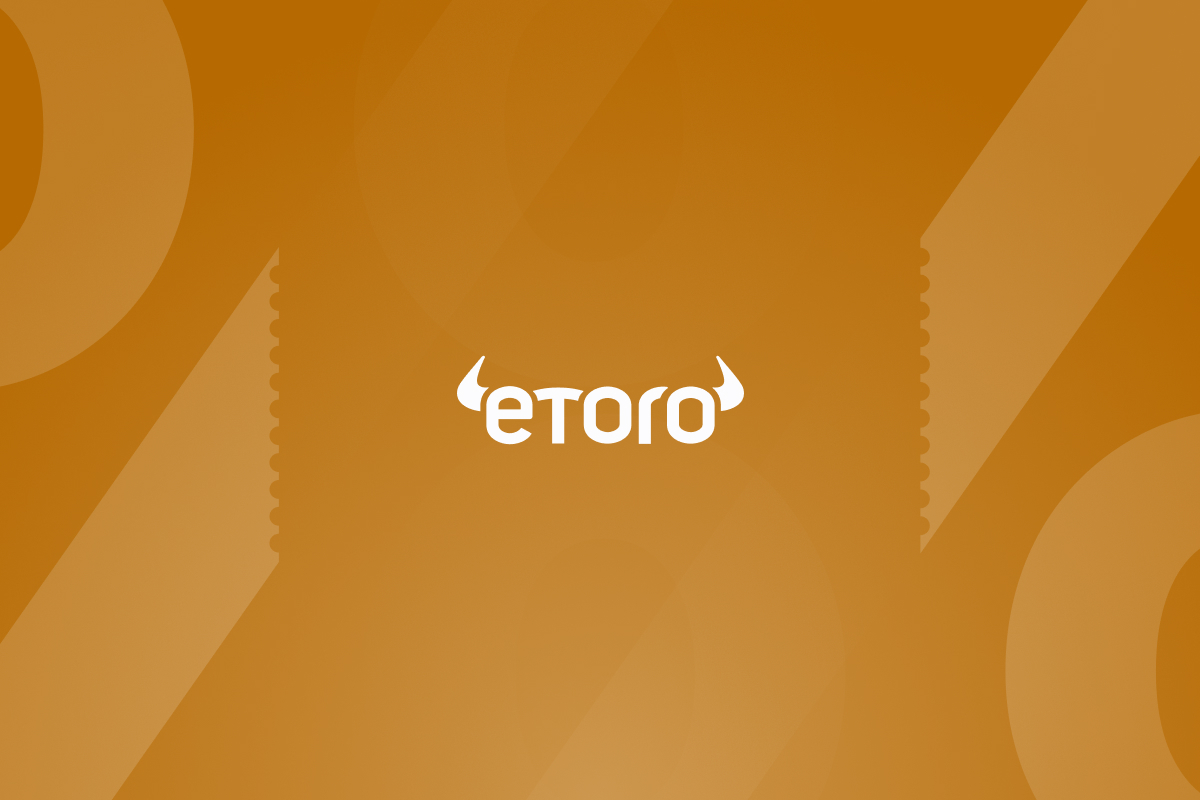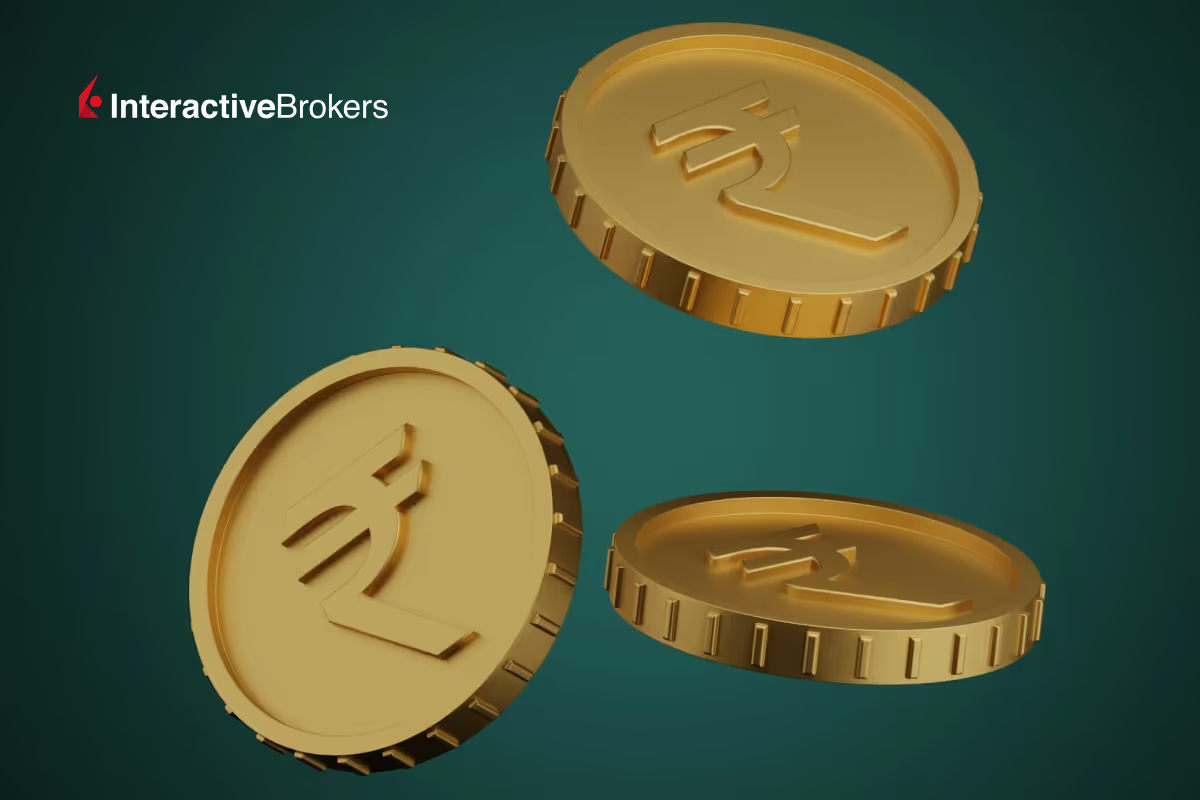Best trading apps in the UAE in 2026
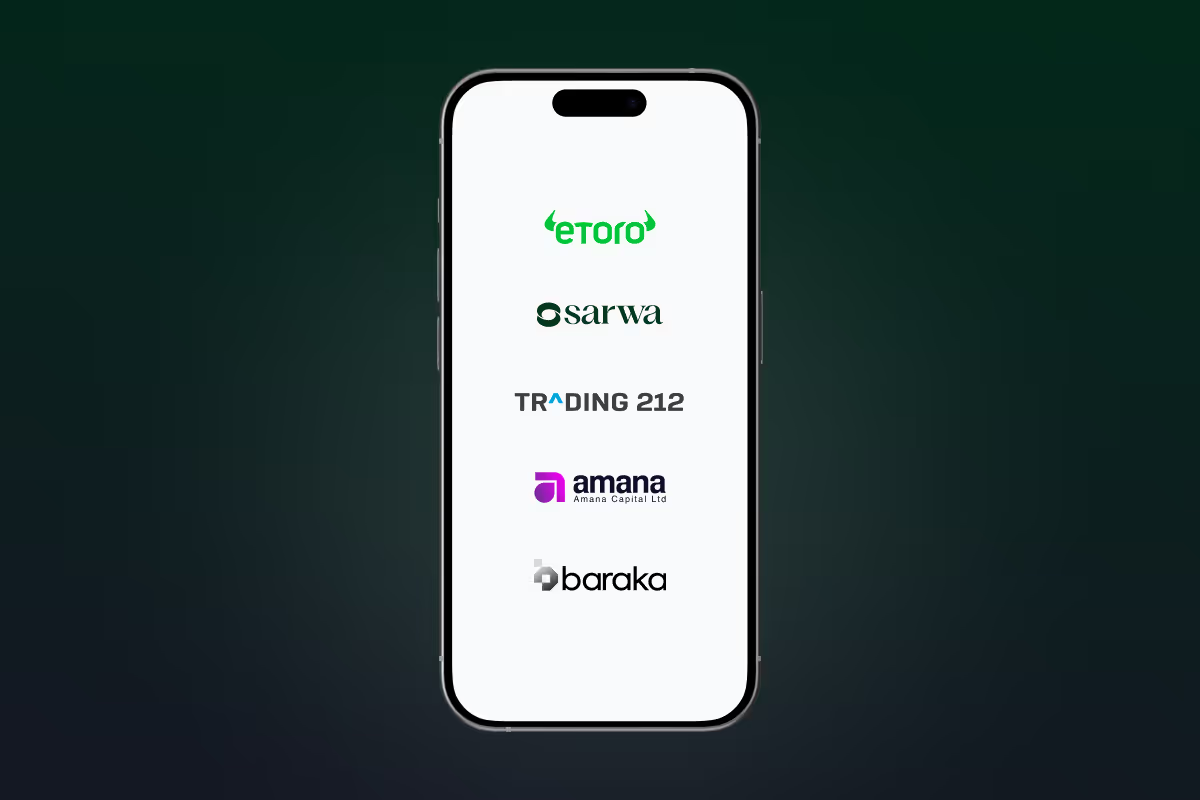

Choosing the right trading app in the UAE can feel overwhelming, especially for beginners, given the rapid growth of the country’s financial ecosystem. During 2024, Dubai’s DIFC alone is home to over 900 firms regulated by the DFSA, including 135 newly licensed entities this year. Meanwhile, Abu Dhabi’s ADGM hosts another 275 licensed institutions, making the UAE a thriving hub for financial services.
In this guide, we’ve reviewed the best trading apps available to UAE residents, including both local platforms and globally recognized apps. Every app featured is regulated either locally (by DFSA, SCA, or ADGM FSRA) or by top-tier international authorities.
While cost matters, regulatory oversight and security should always come first. This article will walk you through the top picks, highlighting each app’s strengths, fees, market coverage (global and regional), and suitability for new investors in the UAE.
The best trading apps in the UAE
- Sarwa - Best trading app in the UAE overall. Sarwa is a UAE-based app offering automated portfolios through its robo-advisory service, along with direct stock and ETF trading. It also provides Sharia-compliant portfolios. New users can earn a signup bonus with the code RLLAA29D.
- eToro - Best for crypto & social trading. eToro offers a unique social trading experience, allowing users to copy the portfolios of successful traders. Beyond stocks and ETFs, it stands out for its broad cryptocurrency offering. eToro offers welcome bonuses for UAE users.
- Trading 212 - Best for commission-free trading. Trading 212 allows users to invest in global stocks and ETFs with zero commission. It also pays interest on uninvested cash (USD, but not in AED) and offers a beginner-friendly interface.
- Amana - Best for trading the MENA market. Amana offers multi-asset trading across stocks, crypto, and Forex with zero commissions. The platform provides access to regional markets like the UAE and Saudi Arabia. New users get a $100 bonus with our promo code "IITW".
- Baraka - Best local “Robinhood-style” app. Baraka is a Dubai-based trading app designed for new investors, offering fractional shares of U.S. stocks and ETFs.
Regulation matters: Avoid using any trading platform not licensed or regulated by a reputable authority. All apps listed here are overseen by regulators in the UAE or major global regulators, which helps protect investors. Always double-check a broker’s licensing status before investing.
Comparison of UAE trading apps
As of February 23, 2026
*CFD Risk Warning: Contracts for Difference (CFDs) are high‑risk products and do not involve ownership of the underlying asset. CFDs are complex instruments that allow you to speculate on the price movements of financial assets, without actually owning them. This means when you trade a CFD on a currency, stock, or commodity, you do not hold the asset itself; you're simply entering into an agreement to exchange the difference in price. A significant majority of retail investors trading CFDs incur losses. Industry data shows that between 60% and 80% of retail clients lose money when trading CFDs.
Reviews of the best UAE trading apps
eToro
- Trading products: Stocks, ETFs, crypto, commodities, CFDs on ETFs, Forex and Indices; UAE stocks (ADX)
- Minimum deposit: $100
- Demo account: Yes
- Islamic account: No
- Regulators: FSRA, FCA, CySEC, ASIC
.png)
eToro is a well-known global broker recognized for pioneering the idea of “social trading.” Its platform combines traditional brokerage services with community-driven features, enabling investors to share insights, discuss market trends, and copy the strategies of experienced traders using the CopyTrader function.
It was founded in 2007 and has since expanded to serve over 40 million users worldwide, and it has established a strong presence in the UAE. Through its Abu Dhabi entity, eToro is regulated by the FSRA under ADGM, giving traders access to both international markets and locally listed UAE stocks on the ADX.
New traders can practice risk-free with a $100,000 demo account, while interactive features, like news feeds, personal profiles, and the option to replicate other investors’ strategies, create a more engaging, community-based trading experience.
When it comes to pricing, eToro charges a flat $1 per trade for U.S., U.K., and European equities. For trades on the Australian, Hong Kong, Dubai, and Abu Dhabi exchanges, the cost is $2 per trade.
Besides, since eToro accounts are denominated in USD, AED deposits are subject to currency conversion fees (around 0.5% via eToro Money, but potentially much higher (up to 8.5%) with direct card conversions). Other costs include a $5 withdrawal fee and a $10 monthly inactivity fee after a year of no logins. Moreover, spreads apply for crypto and CFD trading.
In terms of assets, eToro is a multi-asset platform: it provides access to stocks, ETFs, commodities, indices, Forex, and cryptocurrencies (many available as CFDs). Crypto trading is a major focus, with support for numerous coins and a built-in wallet. What it does not provide, however, are traditional bond investments or mutual funds.
For a deep dive, check our eToro review.
Pros
- Beginner-friendly: Simple interface and unified app covering both traditional and crypto markets.
- Social trading: Unique feature to follow, learn from, and copy professional traders.
- Global and local access: Ability to trade international markets alongside UAE-listed shares.
- Regulated in the UAE: Operates under ADGM FSRA through eToro (ME) Ltd, ensuring local compliance and support.
- Risk-free practice: $100k demo account to experiment with strategies.
Cons
- Currency conversion fees: Deposits in AED are converted to USD, adding costs (best mitigated by using eToro Money).
- Extra charges: $5 per withdrawal and a monthly inactivity fee after 12 months.
- Limited research tools: Lacks the advanced analysis and charting found on professional platforms.
- No bonds or mutual funds: Only ETFs are available for fund-style investing.
- CFD exposure: Many instruments (commodities, Forex, some indices) are CFDs with leverage, which raises risk.
Sarwa
- Trading products: Stocks, ETFs, crypto, auto-managed portfolios.
- Minimum deposit: $500
- Demo account: No
- Islamic account: Yes (Halal portfolios)
- Regulators: FSRA
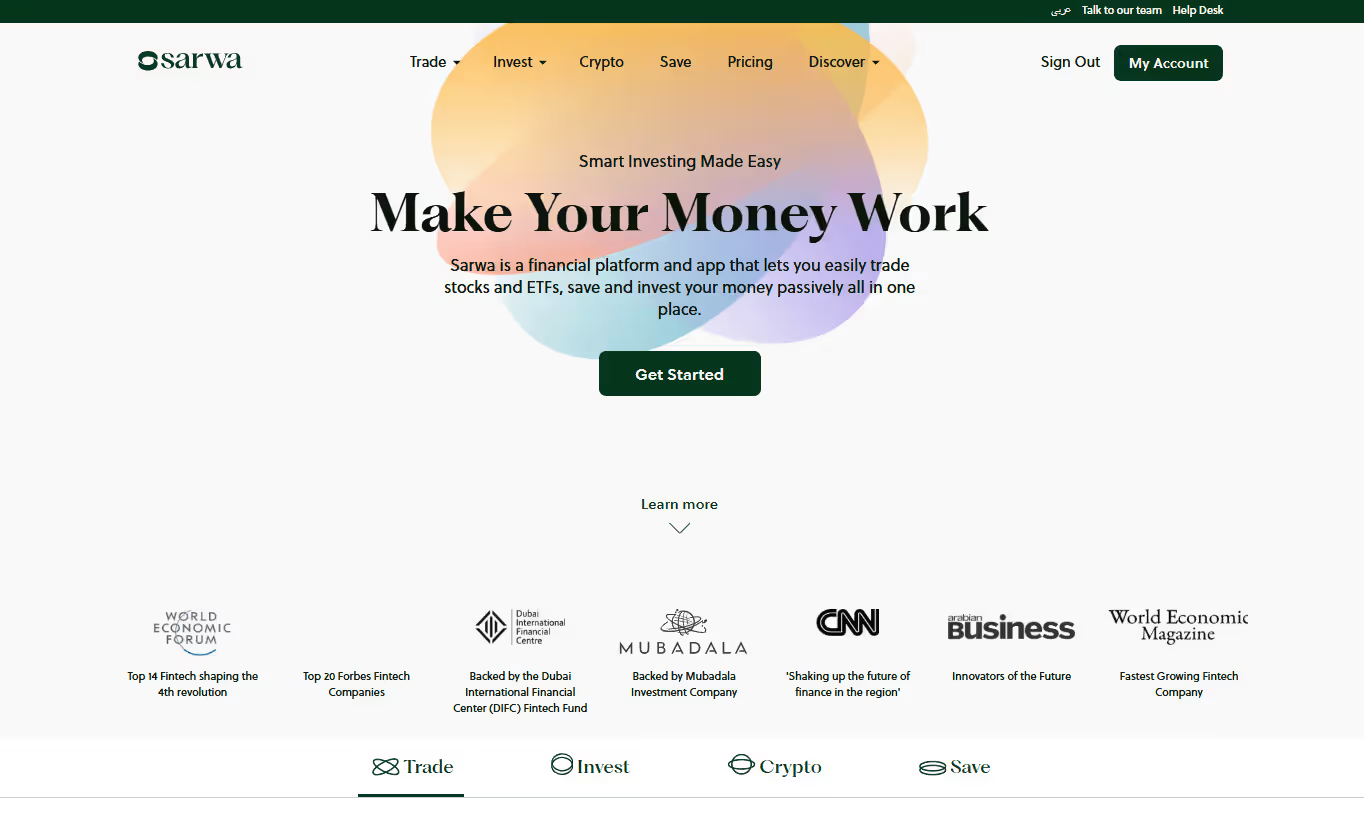
Founded in 2018, Sarwa started as a robo-advisory service focused on automated, long-term investing. In 2021, it expanded with Sarwa Trade, enabling users to directly invest in U.S. stocks and ETFs through a streamlined, beginner-friendly platform.
Sarwa is headquartered in Abu Dhabi and is licensed by the Financial Services Regulatory Authority (FSRA) in ADGM and also operates under the oversight of the Dubai Financial Services Authority (DFSA) for select services.
The app caters to users seeking both hands-off and self-directed investment options through three main services:
- Sarwa Invest (automated portfolios),
- Sarwa Trade (DIY investing), and
- Sarwa Save (earnings on idle cash balances).
Sarwa is designed with simplicity in mind, making it a great choice for first-time investors in the UAE. The app is intuitive and easy to navigate, and what sets it apart is the option to consult real financial advisors, something rarely found in entry-level investment platforms. You can start investing with $500 in automated portfolios, and self-directed trading requires only $1 to begin, lowering the barrier to entry for new users.
Sarwa Trade allows users to invest in over 4,000 U.S.-listed stocks and ETFs, and also supports U.S. options trading at a flat rate of $4 per contract. For those interested in digital assets, Sarwa Crypto enables commission-free purchases of major cryptocurrencies directly through the app. It’s important to note that stock and ETF access is currently limited to the U.S. market, so there is no direct trading of UAE-listed equities or broader international markets.
Sarwa Invest is another product that offers globally diversified portfolios built with ETFs covering U.S. and international equities, fixed income, and more, making it ideal for passive, long-term investors.
Sarwa Trade applies a straightforward pricing structure: each stock or ETF trade is subject to either a flat $1 fee or 0.25% of the trade value (whichever is higher). This means that smaller trades under approximately $400 are charged $1, while larger trades follow the 0.25% rate. There are no per-share commissions, no subscription or platform fees, and no charges for withdrawals, custody, or inactivity. AED deposits and withdrawals are processed without any fees.
For robo-advisory clients, Sarwa Invest charges an annual management fee ranging from 0.5% to 0.85%, depending on portfolio size, which includes automated rebalancing and access to financial advisors. Lastly, Sarwa Save offers a variable yield of around 4% annually on USD balances, with no associated fees.
Do you want to more about Sarwa? Read our review.
Pros
- Beginner-friendly & local: Designed for first-timers, with local UAE customer support and offices.
- All-in-one investing and trading app: Offers automated investing, self-directed trading, and a high-yield cash account in one platform.
- Low fees: Trading fees are low ($1), and no hidden charges (no inactivity, or withdrawal).
- Robo-advisor option: If you prefer passive investing, Sarwa can manage a diversified ETF portfolio for you.
- Access to human advisors: You can chat with a Sarwa financial advisor for guidance, which is great for beginners needing reassurance.
- Local bank integration: Easy AED deposits/withdrawals via UAE bank transfer with no fees.
Cons
- Limited market range: Only U.S. stocks/ETFs are available for trading, no direct access to European, Asian or UAE stocks on Sarwa Trade.
- No advanced trading tools: The platform is intentionally basic; lacks complex charting or analysis tools.
- Options trading is pricey: $4 per options contract is higher than many U.S. brokers charge. Also, no support for bonds or mutual funds aside from what’s in the robo portfolios.
- Crypto limited: Crypto offering is separate (Sarwa Crypto) and may have spread markup; it’s a newer feature.
Trading 212
- Trading products: Stocks and ETFs.
- Minimum deposit: $10
- Demo account: Yes
- Islamic account: No
- Regulators: FCA, CySEC, ASIC, BaFin
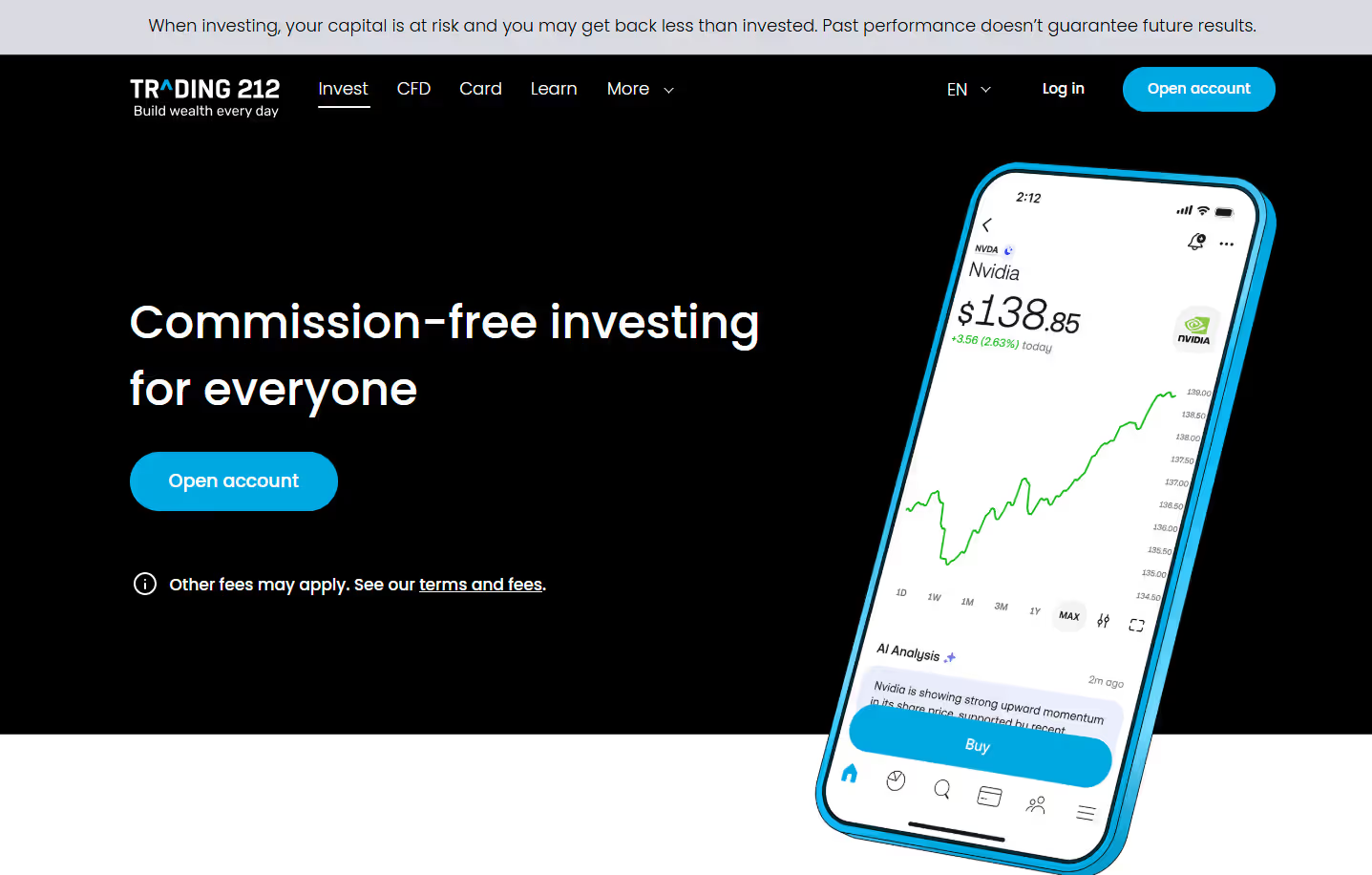
Trading 212, headquartered in the UK, has attracted over 5 million users worldwide with its zero-commission trading and intuitive mobile app. Although not licensed in the UAE, the platform is accessible to UAE residents through its FCA-regulated UK entity. The app is designed with beginners in mind, as it combines ease of use with features like “Pies & AutoInvest,” allowing users to automate investments in customized portfolios over time.
Trading 212 offers two account types: Invest and CFD. The Invest account allows users to buy and hold real stocks and ETFs, making it the preferred choice for beginner investors interested in straightforward, long-term investing. On the other hand, the CFD account supports leveraged trading on a wide range of instruments, including stocks, indices, and commodities, providing more flexibility for short-term or speculative strategies.
One of Trading 212’s most appealing features is its commission-free trading for stocks and ETFs, meaning users don’t pay any direct fee when placing trades on these instruments. This makes it particularly attractive for cost-conscious investors. However, there are still some important costs to keep in mind.
The most notable is the currency conversion fee of 0.15%, which applies whenever you trade assets in a currency different from your account’s base currency, such as converting AED deposits into USD or GBP. While there are no fees for deposits, withdrawals, or inactivity, users of the CFD account will face typical trading costs like spreads and overnight financing charges.
For new investors who stick with long-term investing through the Invest account, most of these extra charges can be easily avoided. Finally, the app includes a free demo account, which is ideal for practicing before committing real funds. Read our full review of Trading 212.
Pros
- Commission-free stock trading: No commission or ticket fee for buying stocks/ETFs (one of the cheapest ways to invest).
- Fractional shares & AutoInvest: Invest small amounts in expensive stocks, and automate your investments on a schedule.
- User-friendly app: Highly rated mobile app, simple interface, and quick account opening process.
- Safety net: Regulated by the UK FCA, with FSCS investor protection up to £85k for your account. Client funds are in segregated accounts as well.
- Demo account available: Practice with virtual funds before risking real money.
- Earn interest on cash: Not widely known, but Trading212 offers high interest on uninvested cash balances (varies by currency).
Cons
- No local UAE stocks or AED accounts: You cannot trade UAE-listed companies, and there’s no AED base currency (you’ll likely use USD, EUR or GBP account).
- Limited product range: doesn’t offer crypto, bonds, or listed options. While sufficient for stock investors, more advanced strategies may require another trading app.
- Basic research tools: The platform has some charts and data, but it’s not as in-depth as other trading apps targeting professional traders. You may need external research tools if you require detailed analytics.
- CFD trading risk: Although optional, the availability of leveraged CFD products could be tempting for new users. It’s best to avoid them until you fully understand the risks.
- No dedicated UAE support: Customer service is fully online with no regional office presence. While generally responsive, time-zone gaps may delay real-time help.
Amana
- Trading products: Stocks (MENA stocks available), ETFs, crypto, Forex, Indices and commodities
- Minimum deposit: $25
- Demo account: Yes
- Islamic account: Yes
- Regulators: DFSA, CySEC, LFSA, SCA, FSC, CMA
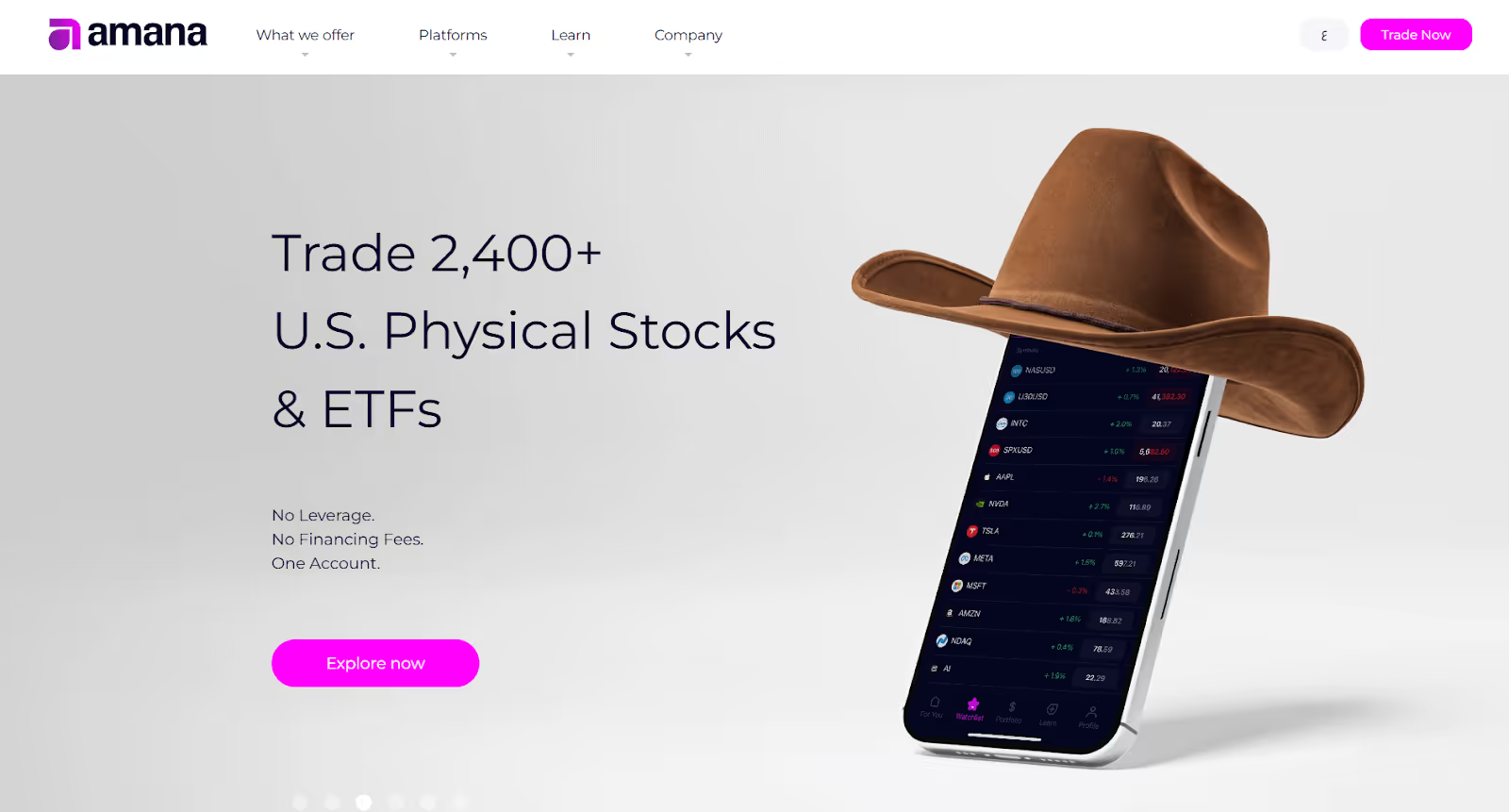
Amana is a Dubai-based trading platform that has grown significantly in recent years. Originally launched in 2010 as Amana Capital, the company has since rebranded to Amana, introducing a sleek mobile app that allows commission-free trading across multiple asset classes, including stocks and cryptocurrencies. Amana operates globally under multiple licenses, notably DFSA, CySEC, LFSA, SCA, FSC, CMA.
Amana’s mobile app provides an all-in-one solution for trading a wide variety of asset classes. The platform is built to cater to both beginners and active traders and is accessible in both Arabic and English. Moreover, Amana places a strong focus on financial education and regional relevance, positioning itself as a serious alternative to global brokerages.
What you can trade on Amana:
- Physical stocks and ETFs: 2,100+ U.S. equities and 200+ MENA stocks (likely UAE, Saudi, etc.) available for real ownership.
- Leveraged CFDs: 5,200+ CFDs that include major Forex pairs, global indices, and commodities with execution through the mobile app or MetaTrader 4/5.
- Cryptocurrencies: 375+ crypto assets, which is one of the largest crypto offerings in MENA. You can even fund your account with crypto and withdraw in crypto, which is uncommon.
- Investments on autopilot: Recently, Amana introduced automated investment plans, essentially a robo-advisory feature where you can invest in a pre-set portfolio regularly.
- Cash management: Earn interest on idle cash in your account.
Amana promotes a zero-commission model on trades involving both U.S. and regional (MENA) stocks, including shares listed in the UAE. Users also benefit from free deposits and withdrawals, whether using local bank transfers or credit and debit cards.
Instead of charging traditional trade commissions, Amana generates revenue through spreads on CFD instruments and may apply currency conversion fees where applicable. Additionally, the platform does not levy any inactivity fees, making it a cost-effective option for both active and occasional investors.
Pros
- Zero-commission stock trading: Buy U.S. or MENA stocks with no commissions.
- Extensive asset offering: It’s one of the few apps combining local stocks, international markets, and crypto in one platform. You won’t need multiple broker accounts.
- Beginner-focused features: Despite offering advanced products, Amana’s app has a modern, intuitive design. It provides educational content, webinars, and trading guides to help users learn. There’s also a social aspect with community events and challenges (like trading competitions with rewards).
- Multiple funding options: Credit cards, bank transfers, and even instant UAE bank integration and crypto deposits.
- 24/6 customer support: Support is available mainly during market hours.
Cons
- Entity differences: Amana operates via different entities; the exact products you get might depend on whether you’re under DFSA or offshore. For example, crypto might be offered via an offshore entity.
- No mutual funds, bonds, or options: The platform doesn’t currently support mutual funds, bonds, or options, making it less suitable for investors seeking a broader set of asset classes.
Baraka
- Trading products: U.S. Stocks and ETFs
- Minimum deposit: $50
- Demo account: No
- Islamic account: Yes
- Regulators: DFSA
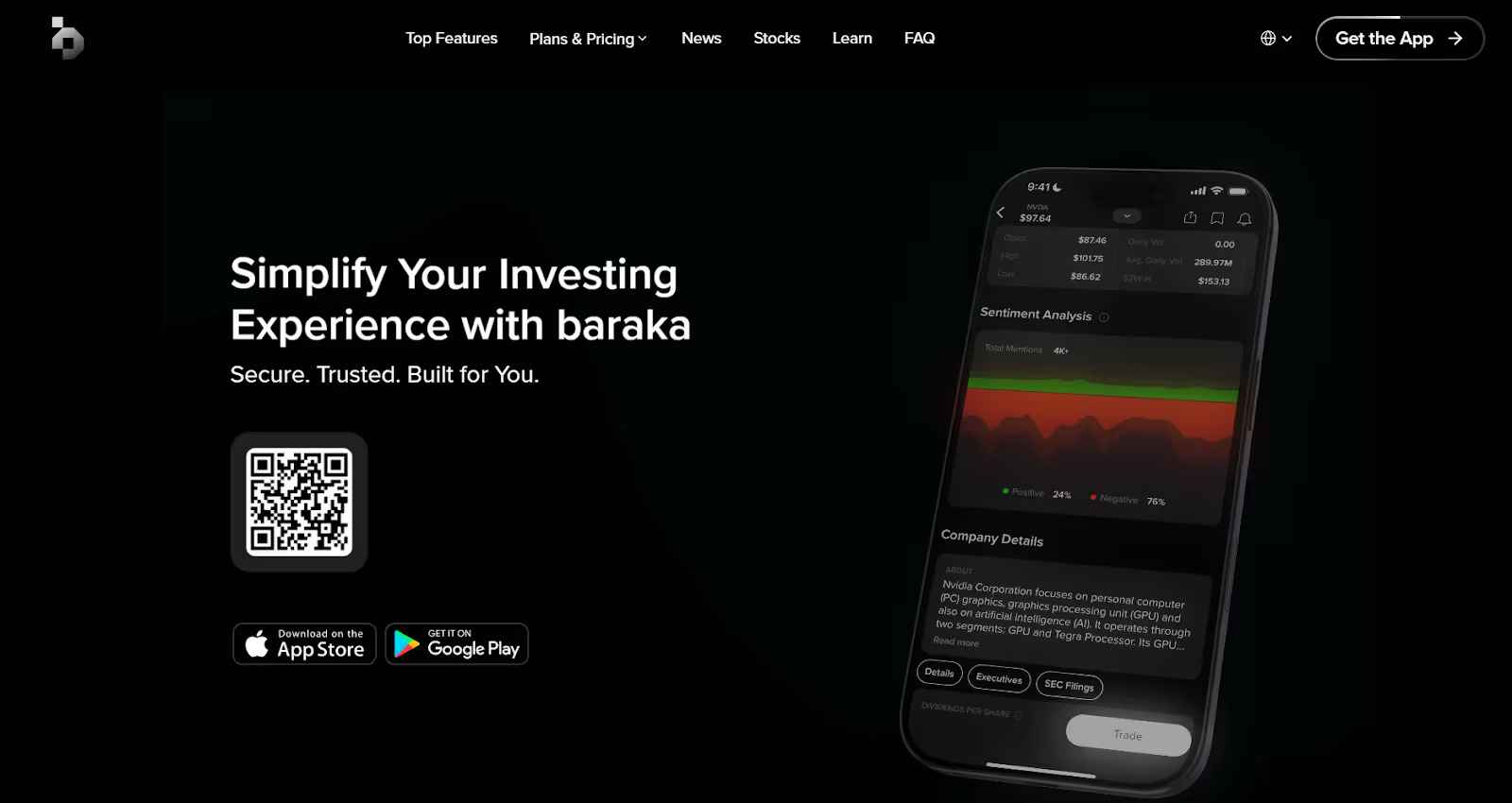
Baraka was founded in the UAE in 2021 with the mission to democratize investing for the region’s next generation. With a sleek, mobile-only interface and a commission-free model, Baraka draws frequent comparisons to Robinhood. The platform focuses on U.S. stocks and ETFs and is designed with beginners in mind, offering educational resources, community features, and halal investing filters to cater to users seeking Sharia-compliant options.
Despite being relatively new, Baraka has gained rapid credibility, backed by global accelerator Y Combinator and recognized by the UAE Ministry of Economy as a high-growth startup. It operates from its headquarters in Abu Dhabi’s ADGM and holds a DFSA license in Dubai, giving it a strong regulatory foundation and a solid local presence.
Baraka follows a freemium pricing model designed to suit casual and active investors. On the free plan, users get one commission-free trade per month. After that, each additional trade costs a flat $1. For those who plan to trade more frequently, Baraka offers two subscription options: Premium (around AED 36.50/month) includes five free trades per month, while Premium+ (AED 73/month) provides unlimited commission-free trades.
There are no percentage-based trading fees, no custody charges, and no deposit or withdrawal fees from Baraka’s side (though your bank might apply its own transfer charges). Deposits made in AED are converted to USD at a small FX spread. There’s also a minor $1/month inactivity fee, but only if your balance is under $50 and you have no holdings.
Baraka offers access to over 6,000 U.S. stocks and 2,400 ETFs listed on major U.S. exchanges like the NYSE and NASDAQ. Fractional shares are supported, allowing users to start investing with as little as $5 or $10. A standout feature is Auto-Invest, which enables recurring purchases of individual stocks or themed investment “baskets,” making it easier to build long-term portfolios.
Baraka caters to ethical investors through its Shariah-compliant filter, which provides access to over 1,500 halal-certified stocks and ETFs. However, Baraka’s scope is currently limited to U.S. markets. It does not offer trading in UAE or other international stocks, nor does it support crypto, Forex, commodities, options, or other derivatives. Additionally, the platform is mobile-only, with no desktop version available.
Pros
- Designed for beginners: Baraka features a clean, intuitive interface that makes investing simple, accessible, and even enjoyable for first-time users.
- Low cost: With one free trade per month on the basic plan, casual investors can get started at virtually no cost. Those trading more frequently can upgrade to fixed-price subscription tiers, providing predictable and affordable pricing.
- Halal investing features: Baraka offers a simple toggle to filter stocks and ETFs that meet halal investing criteria. This is a unique and valuable feature for GCC users seeking to align their portfolios with Islamic finance principles.
- Local regulation: Baraka is regulated by the DFSA and also in ADGM’s sandbox, meaning it’s under UAE oversight.
Cons
- Only US market: Baraka currently supports only U.S.-listed stocks and ETFs. If you're looking to invest in the UAE, GCC, or other international markets, you'll need to use a different platform.
- Limited asset classes: The platform doesn’t support cryptocurrencies, Forex, or options trading. While this simplicity benefits beginners, more advanced traders may find the offering too narrow.
- Limited tools: The app provides basic charts and data, but it’s not meant for technical trading or deep analysis. There are no sophisticated order types (mostly market or limit orders) and no analytic tools like stock screeners.
- Mobile only: Baraka is exclusively app-based, with no web or desktop platform. For users who prefer larger screens or multi-device access, this could be a limitation.
How to choose the right trading app
If you're just starting your investment journey, choosing the right trading app can make a big difference. Here are the main factors to keep in mind:
- Security & regulation: Ensure the platform is properly regulated (ideally by UAE authorities like SCA, DFSA, or ADGM, or top-tier global regulators). Regulated brokers must follow strict rules to protect your money. For instance, they are required to keep client funds segregated from their own accounts. This means even if the broker has financial trouble, your assets are safeguarded.
- Fees & commissions: Even small fees can eat into your returns over time. Look at trading commissions (zero-commission offerings are common now), but also consider currency conversion fees, withdrawal fees, and spreads on products.
- Product range: Think about what you want to invest in. Ensure the app covers your target markets and assets. For instance, not all platforms offer UAE stock market access or certain international ETFs.
- Ease of use: As a beginner, you’ll benefit from an app with a simple, intuitive interface. Check for things like a good mobile app rating, availability of a demo account, and overall user experience.
- Funding & withdrawals: Look at what payment methods are supported. Can you deposit from a UAE bank in AED? Is there instant funding via card or local transfer? And how quickly can you withdraw money back? Some global brokers require international wire transfers, which can be slower or incur bank fees. Local apps might have easier AED funding options.
- Customer support: When you’re new, questions will arise. Good customer support (chat, email, phone) can be a lifesaver if you encounter issues with your account. Locally based brokers may offer quicker support during UAE business hours.
- Features for education/guidance: Since you’re a beginner, an app that provides educational content, tutorials, or even social/community features can be very helpful.
Conclusion
Choosing the right trading app in the UAE ultimately comes down to your goals, experience level, and preferred investment style.
For those just starting out, Sarwa and Baraka stand out with their beginner-friendly interfaces, local presence, and strong educational focus. Sarwa suits hands-off investors looking for automated portfolios or Shariah-compliant solutions, while Baraka is ideal for self-directed U.S. stock investing with a clear, mobile-first approach.
If your priority is crypto exposure or social trading features, eToro offers an engaging, all-in-one experience, especially for users who value community insights and portfolio diversity. More experienced investors might be inclined to choose Trading 212 for its commission-free stock and ETF trading, fractional shares, and automated investing features.
Meanwhile, Amana is emerging as a comprehensive “super app” for the region, offering access to MENA equities, U.S. stocks, crypto, Forex, and even auto-investing, making it suitable for users seeking multi-asset exposure with a regional edge.
Regardless of the platform you choose, always prioritize regulation, ease of funding, and clarity on fees. Start small, build your knowledge, and grow your portfolio at a pace that fits your financial goals.
Welcome to your journey into the world of trading in the UAE, and happy investing!



